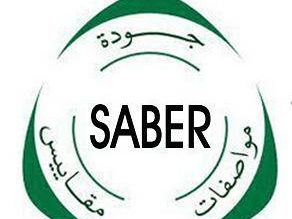When exporting goods to the Middle East and Africa, various certifications and compliance requirements must be met to ensure the quality and safety of products. Here are some common certifications and their details:
1. Saudi COC Certification
Saudi Arabia’s standardization body, SASO (Saudi Standards, Metrology, and Quality Organization), initiated the “Saudi Product Safety Program” (SALEEM) to ensure the quality and safety of all products imported into the Kingdom of Saudi Arabia. SALEEM integrates multiple certification requirements and processes under its umbrella. It functions as a system for various Saudi certifications, including IECEE, Q-MARK, energy efficiency, water efficiency, GCC, and more.
2. Kenya PVOC Certification
The Kenya Bureau of Standards (KEBS) is the statutory body responsible for developing and implementing standards for both imported and locally produced products in Kenya. KEBS introduced the Pre-Export Verification of Conformity to Standards (PVoC) program in 2005.
PVoC is an assessment and verification program applicable to specific goods from various exporting countries. Its aim is to ensure that imported products comply with Kenyan technical regulations and mandatory standards or approved equivalent standards. All goods listed in the PVoC catalog must obtain a Certificate of Conformity (CoC) issued by KEBS-authorized agencies before shipping. The CoC is a mandatory customs clearance document, and goods without it will be refused entry at Kenyan ports.
3. South Africa LOA Certification
The Letter of Authority (LOA) is a mandatory certification in South Africa. It is required for products being exported to South Africa. South Africa introduced official notices in 2009, outlining mandatory safety standards for various products.
Some of the mandatory standards include:
- SANS IEC 60335 – Safety requirements for household appliances.
- SANS IEC 60065 – Safety requirements for audiovisual and similar electronic apparatus.
- SANS IEC 61029 – Safety requirements for transportable motor-operated electric tools.
- SANS IEC 60745 – Safety requirements for hand-held motor-operated electric tools.
- SANS IEC 60598 – Safety requirements for luminaires.
- SANS IEC 60950 – Safety requirements for information technology equipment.
- VC8075 – Mandatory specifications for solid core insulated power cables.
- VC8077 – Mandatory specifications for medium voltage cables.
- VC8043 – Mandatory specifications for incandescent lamps.
LOA certificates are valid for three years, after which they must be renewed.
4. South Africa SABS Certification
SABS certification refers to certification issued by the South African Bureau of Standards (SABS). SABS is an independent third-party certification body responsible for product and system certification in South Africa. Besides developing standards, SABS also represents the country in managing mandatory specification standards. SABS certification is widely used across various industries, including chemicals, biologics, textiles and clothing, machinery, safety equipment, electrical products, civil engineering, construction, and automotive products.
5. Nigeria CRIA Certification
CRIA stands for Clean Report Inspection Analysis. It’s a new regulation by Nigeria’s NAFDAC department, requiring all products under NAFDAC’s regulation to undergo CRIA.
6. Nigeria SONCAP Certification
The Standard Organization of Nigeria (SON) is Nigeria’s governmental body responsible for setting and enforcing quality standards for imported goods and locally manufactured products. To protect Nigerian consumers from unsafe or substandard products, SON implemented the SON Conformity Assessment Programme (SONCAP). SONCAP enforces mandatory pre-shipment conformity assessment procedures for controlled products exported to Nigeria. Compliance with SONCAP is essential for products entering the Nigerian market.
Understanding and adhering to these certifications is crucial for exporters looking to trade with countries in the Middle East and Africa, ensuring compliance with local regulations and standards, and maintaining the safety and quality of their products.

